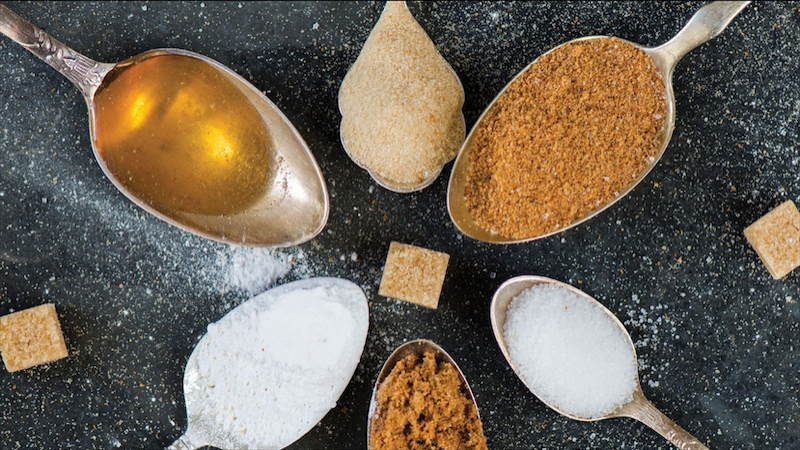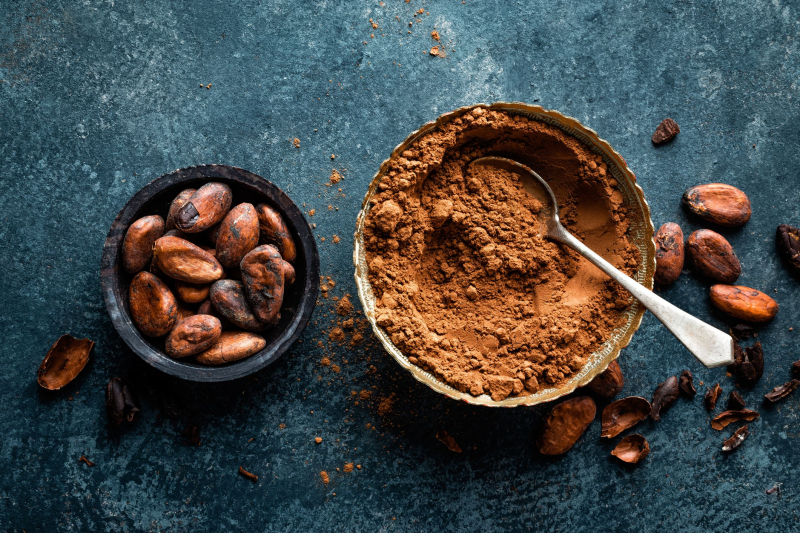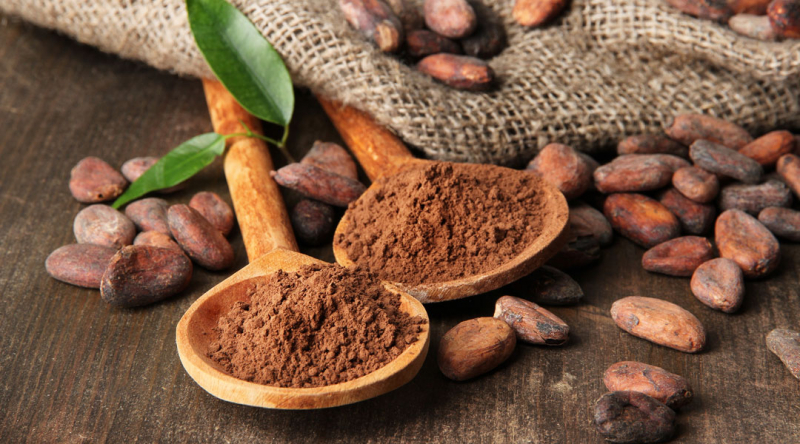Top 15 Natural Ways to Improve Your Memory
Everyone often has moments of forgetfulness, especially when life becomes busy. Even while this could be quite natural, having trouble remembering things might ... read more...be annoying. Memory loss is influenced by genetics, particularly in serious neurological diseases like Alzheimer's disease. However, studies have revealed that nutrition and lifestyle also significantly affect memory. Here are the top natural, evidence-based techniques to enhance your memory!
-
Consuming excessive amounts of added sugar has been related to a number of chronic illnesses and health problems, including cognitive deterioration. The World Health Organization recommends less than 5% of calories from added sugar for optimal health.
A diet high in sugar has been linked to lower brain volume and memory problems, especially in the part of the brain that maintains short-term memory, according to research. For example, one research involving over 4,000 participants discovered that those who consumed more sweet beverages like soda had, on average, smaller overall brain volumes and worse memory than those who consumed less sugar. Reducing your sugar intake benefits both your memory and overall health.

Eat less added sugar 
Eat less added sugar -
The omega-3 fatty acids eicosapentaenoic acid (EPA) and docosahexaenoic acid are abundant (DHA) in fish oil. These fats have been demonstrated to lessen the risk of heart disease, reduce inflammation, ease stress and anxiety, and slow brain decline, making them crucial for overall health.
Numerous studies have suggested that eating fish and taking supplements with fish oil may enhance memory, particularly in elderly adults. When adults with mild memory loss consumed supplements high in DHA and EPA, such as fish oil, their episodic memory improved, according to a 2015 review of 28 research. In addition to being essential for the health and the functioning of the brain, DHA and EPA also serve to lower inflammation in the body, which has been associated with cognitive decline.

Try a fish oil supplement 
Try a fish oil supplement -
Your health may benefit from meditation in a variety of ways. It is soothing and relaxing, and research has shown that it may lower blood pressure, lessen stress and pain, and even help with memory.
In fact, studies have demonstrated that meditation boosts the brain's gray matter. Neuronal cell bodies are found in gray matter. Gray matter worsens with age, which has a detrimental effect on memory and cognition. People of all ages, from those in their 20s to older adults, have proven that short-term memory may be improved by meditation and relaxation techniques. For instance, one study found that Taiwanese college students who practiced mindfulness and other forms of meditation had considerably better spatial working memory than those who did not. (Spatial working memory is the ability to hold and process information in your mind).

Make time for meditation 
Make time for meditation -
One of the greatest methods to keep your body and mind in top condition is to maintain moderate body weight. Maintaining healthy body weight is crucial for well-being. Obesity has been identified as a risk factor for cognitive deterioration in several studies.
Obesity can change the genes in the brain that are connected to memory, which has a bad impact on memory. Inflammation and insulin resistance, both of which can have a detrimental effect on the brain, are further consequences of obesity. In a research of 50 people between the ages of 18 and 35, it was shown that substantially lower memory test results were linked to greater body mass index. Obesity is linked to an increased risk of Alzheimer's disease, a progressive disease that destroys memory and cognitive function.

Maintain a moderate weight 
Maintain a moderate weight -
For a very long time, inadequate sleep has been linked to memory loss. Memory consolidation, the process through which short-term memories are reinforced and converted into long-lasting memories, is significantly influenced by sleep.
According to research, not getting enough sleep may have an adverse effect on your memory. For instance, one research examined the impact of sleep on 40 kids between the ages of 10 and 14. One group of kids had training for memory tests in the evening, then tested the following morning after a night’s sleep. The other group did not have any rest in between training and testing; they were done on the same day. The memory tests were 20% more effective for the group that slept in between training and testing. For adults, health professionals recommend between 7 and 9 hours of sleep every night for best health.

Get enough sleep 
Get enough sleep -
Being mindful is keeping your attention on your present situation and while remaining aware of your surroundings and feelings. Mindfulness is used in meditation, but the two are distinct. In contrast to mindfulness, which is a mental habit you may apply in any circumstance, meditation is a more formal practice.
According to studies, mindfulness is useful for reducing stress and enhancing focus and memory. In a study including 293 psychology students, it was discovered that those who completed mindfulness training performed better than those who did not in terms of object recall and recognition memory. Additionally, mindfulness has been associated with an overall increase in psychological well-being and a decreased risk of age-related cognitive deterioration. By paying more attention to the moment, focusing on your breathing, and gently redirecting your attention when your mind wanders, you may incorporate mindfulness practices into your daily routine.

Practice mindfulness 
Practice mindfulness -
Binge drinking may have a severe influence on your memory and be harmful to your health in many other ways. A pattern of drinking known as binge drinking results in blood alcohol concentrations of 0.08 grams per milliliter or higher. According to studies, it changes the brain and impairs memory.
In comparison to students who never binge drank, those who had six or more drinks in a short period of time, either weekly or monthly, performed worse on tests of immediate and delayed memory recall. Alcohol has brain-damaging effects that are neurotoxic. Repeated binge drinking episodes can harm the hippocampus, a part of the brain that is crucial for memory. While the occasional glass or two is probably fine, it's a good idea to limit your alcohol consumption to protect your memory.

Drink alcohol in moderation 
Drink alcohol in moderation -
Playing brain games is a great method to exercise your cognitive abilities while improving your memory. Tetris, word-recall games, crossword puzzles, and even memory-training mobile apps are all effective memory boosters.
In one research with 42 adults with moderate cognitive impairment, it was shown that spending 8 hours per week for 4 weeks playing games on a brain-training app improved performance on memory tests. Another research with 4,715 participants found that when participants completed a 15-minute online brain-training program at least five days a week, their short-term memory, working memory, focus, and problem-solving skills significantly improved in comparison to a control group. Additionally, studies have indicated that playing brain-training games can lower the risk of dementia in older adults.

Train your brain 
Train your brain -
Excessive consumption of refined carbs, such as those found in cakes, cereal, cookies, white rice, and white bread, may harm your memory. These foods have a high glycemic index, which means that they are quickly digested by the body and cause an increase in blood sugar levels.
Studies have revealed that dementia, cognitive decline, and decreased cognitive function are linked to the Western diet, which is high in refined carbohydrates. In one research including 317 healthy Korean youngsters, it was shown that those who ate more processed carbs, such as white rice, noodles, and fast food, had a worse cognitive function, including worse working and short-term memory. Another study found that those who regularly drank ready-to-eat breakfast cereal had worse cognitive function than those who did not.

Limit refined carbs 
Limit refined carbs -
The body uses vitamin D for a variety of essential functions. Reduced cognitive function is one of the health problems associated with low vitamin D levels.
Those with blood levels of vitamin D less than 20 nanograms per milliliter (ng/mL) lost their memory and other cognitive functions more quickly than those with normal vitamin D levels, according to a research that followed 318 older adults for 5 years. A higher risk of dementia has also been linked to low vitamin D levels. Those with darker skin and those who live in colder areas are more likely to suffer from vitamin D deficiency. To determine whether you require a vitamin D supplement, talk to your doctor about getting a blood test.

Get your vitamin D levels tested 
Get your vitamin D levels tested -
For overall physical and mental health, exercise is essential. It has been shown in studies to be good for the brain and may help in memory improvement in people of all ages, from young children to older adults.
For instance, a study of 144 individuals, ranging in age from 19 to 93, revealed that all age groups benefited from a single session of 15 minutes of moderate activity on a stationary bike. Numerous studies have demonstrated that exercise may boost the release of neuroprotective proteins and enhance the growth and development of neurons, both of which contribute to better brain health. Regular exercise in middle age is also linked to a lower risk of dementia in old age.

Exercise 
Exercise -
A diet high in anti-inflammatory foods may help you remember things better. By lowering the oxidative stress brought on by free radicals in the body, antioxidants help to reduce inflammation. Antioxidants are present in a variety of foods, including teas, fruits, and vegetables.
According to a new analysis of nine research involving more than 31,000 participants, people who eat more fruits and vegetables had lower risks of cognitive decline and dementia than people who eat fewer of these healthy foods. Antioxidants including flavonoids and anthocyanins are particularly abundant in berries. They might be a great way to prevent memory loss if you eat them.

Choose anti-inflammatory foods 
Choose anti-inflammatory foods -
Turmeric root contains significant amounts of the chemical component curcumin. It belongs to the group of substances known as polyphenols. It has strong anti-inflammatory effects on the body and is a potent antioxidant.
According to studies, curcumin lowers the number of amyloid plaques in the brain as well as oxidative damage and inflammation. These build up on neurons and kill cells and tissues, impairing memory. In fact, the development of amyloid plaques may contribute to the development of Alzheimer's disease. Although additional research in humans is required to determine how curcumin affects memory, some studies indicate it may be helpful for improving memory and preventing cognitive decline.

Consider curcumin 
Consider curcumin -
Cocoa is not only delicious but also healthy, offering a significant amount of flavonoids, a powerful group of antioxidants. According to research, flavonoids are very good for the brain.
They could help in promoting the development of blood vessels and neurons as well as boosting blood flow in brain regions associated with memory. According to one research done on 30 healthy adults, those who ate dark chocolate with 720 mg of cocoa flavonoids had superior memories to those who ate white chocolate devoid of the antioxidants. Choose dark chocolate with a cocoa level of at least 70% cacao if you want to benefit the most from it. That will make it more likely to have higher concentrations of antioxidants like flavonoids.

Add some cocoa to your diet 
Add some cocoa to your diet -
You might want to include rosemary in your new garden. It has been demonstrated that using it in aromatherapy or as a food seasoning enhances cognitive function.
In a 2012 research, subjects with a mean age of 75 were examined to see how dried rosemary powder affected their cognitive performance. In the study, one group received four doses of rosemary over a six-hour period, while the other received a placebo as a control. After seven days, the researchers monitored the cognitive activities of both groups and found the group given the rosemary powder had a speedier memory than before the study while the placebo group did not. It was discovered that rosemary improved cognitive performance in terms of speed and accuracy.

Consider rosemary 
Consider rosemary




































